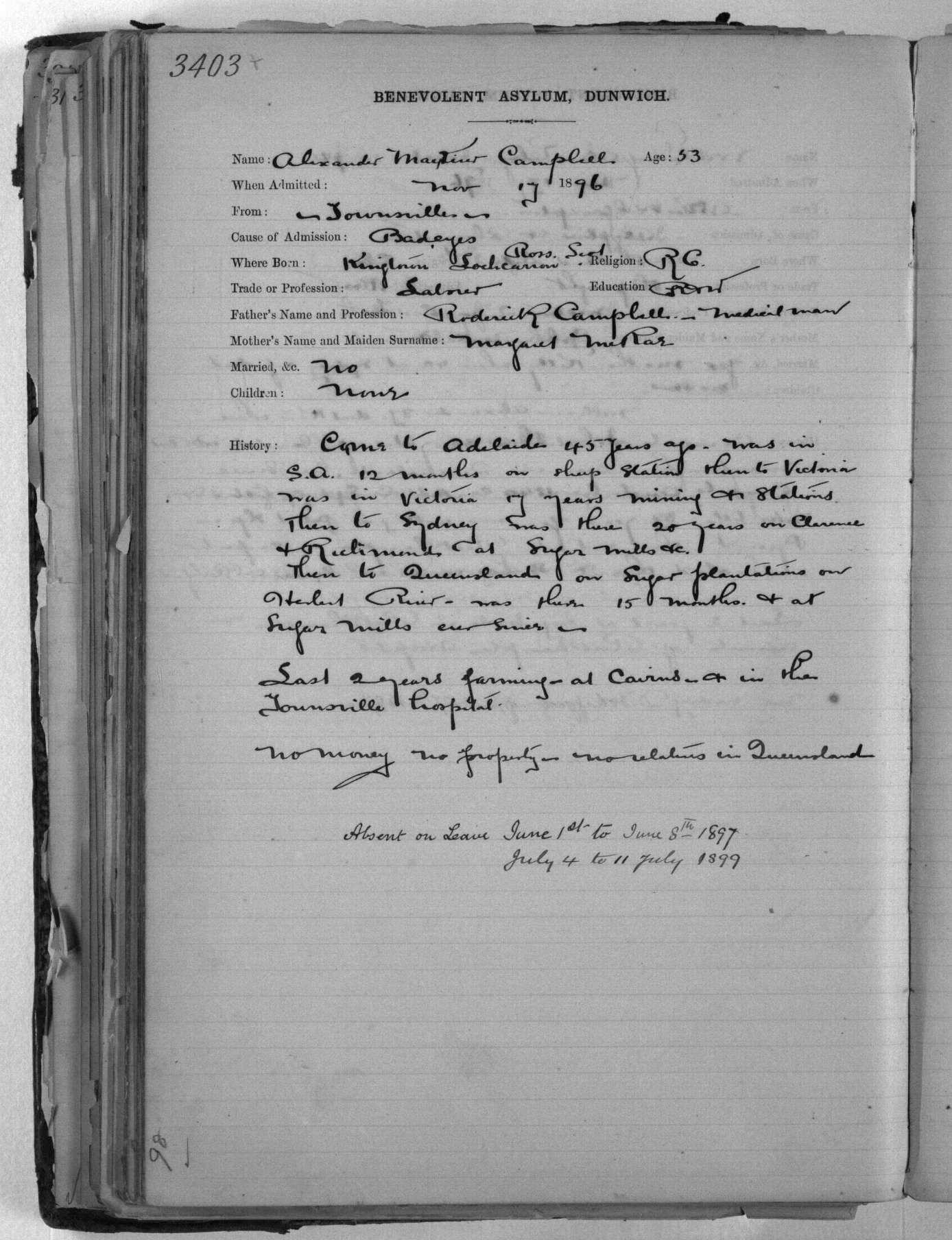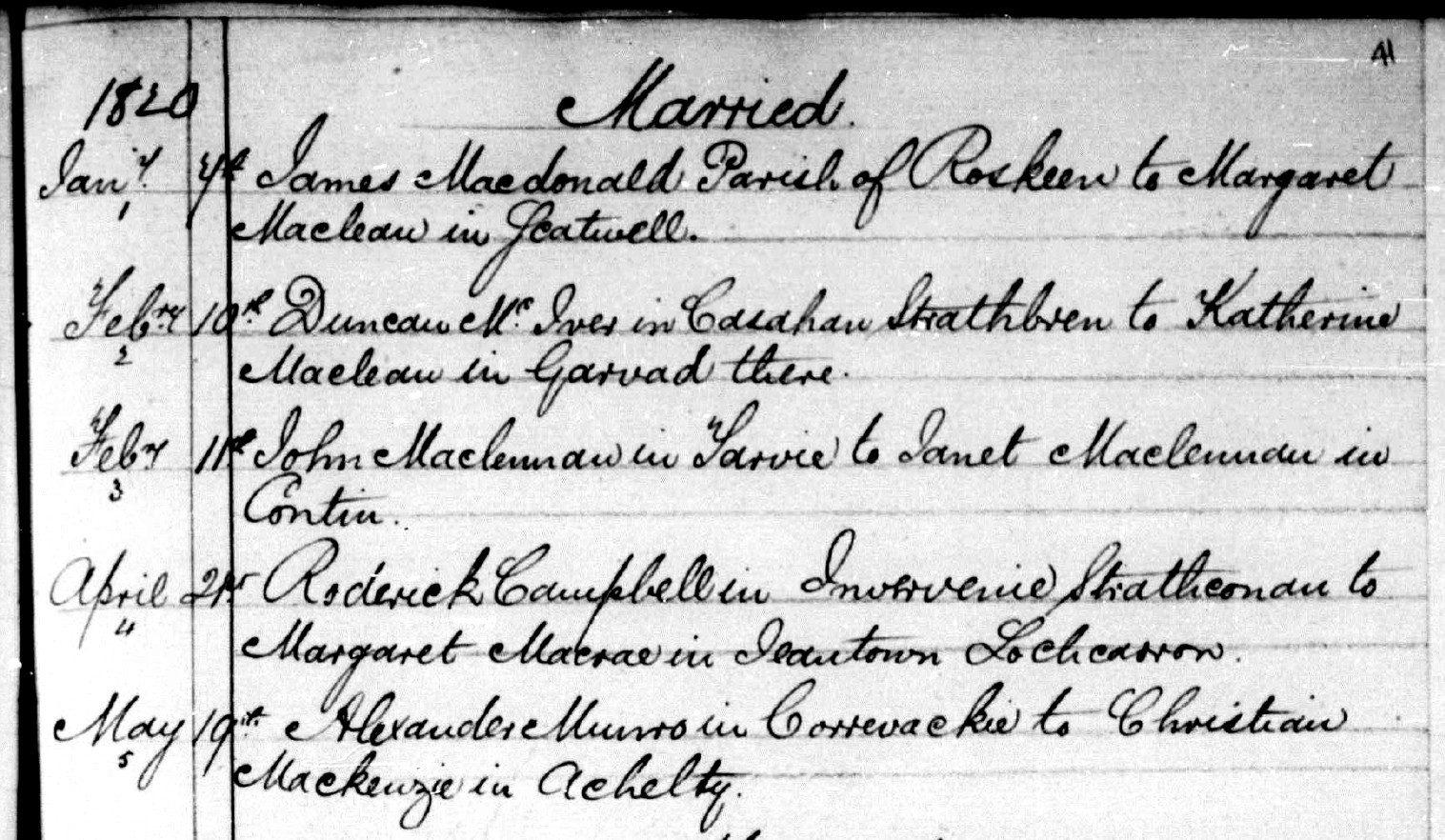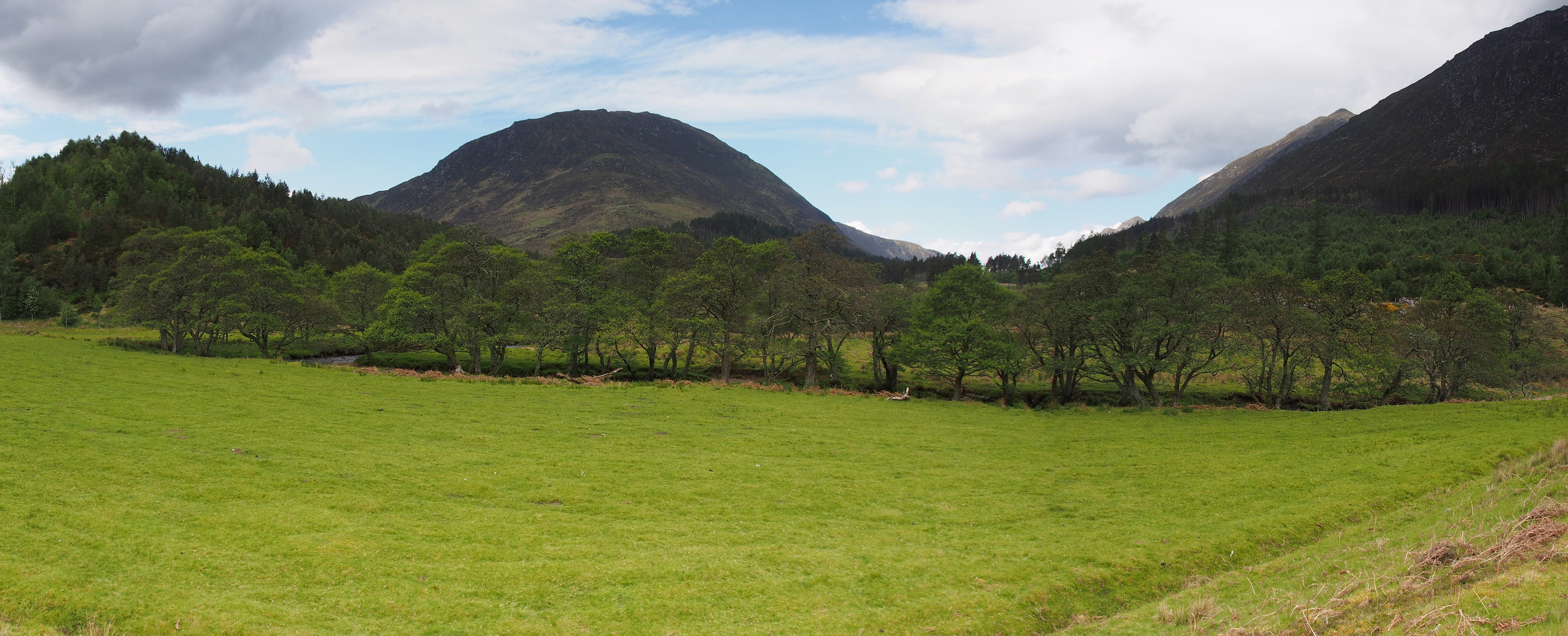This static page was generated with bash, make, sed, ImageMagick and awk. It is served by lighty on an Ubuntu based server.
CC BY 4.0 
|
Are You a Descendant of Roderick Campbell and Margaret McRae? You are probably a McIvor.
Alexander "McKeiver" Campbell

Alexander Campbell's Dunwich admission form.
My paternal grandfather's paternal grandfather Alexander Campbell
(1830-1915) gave the name Alexander MacKeiver Campbell on admission to Dunwich Benevolent Asylum in Queensland in 1896. This was the
first written record of McIvor/McIver/McKeiver I found associated with Alexander Campbell or his paternal ancestors.
Alexander's father, Roderick (c1800-1854), is listed as from
Invervenie, Strathconan, on Roderick's 1820 marriage record with Margaret McRae (c1801-1854). Invervenie was a small settlement in a
remote Highland glen of Ross-shire, Scotland. In the early 19th Century Invervenie (also known as Glenmeanie, Glenmeinich or Invermeinie) was associated with both sheep and cattle
rearing, and the illegal distillation of
whisky.
A researcher from the the NOSAS Strathconon Project 2006-09, informs me of the following:
Campbell is an unusual surname for the glen [i.e. Strathconon], most of the area was Clan Mackenzie land with Strathconon coming
under the Seaforth Mackenzies, Chiefs of the Clan - the predominant surnames were MacRae, MacLennan and MacIver (all septs of the
clan Mackenzie). I have a list of householders in the Parish of Contin drawn up by the minister of the parish in 1798, it does not
mention a Campbell in Invervenie (also known as Invermeinie or Invermenie - it was at the lower end of Glen Meinich a side glen of
Strathconon).

Roderick Campbell and Margaret McRae's Marriage record.
You will be interested to note that a court case was reported in the Inverness Journal on 29 April, 1831; For Assault and Deforcement
of Officers of Revenue - the diet was called against Alexander Campbell, otherwise known as MacIver or Broker, Finlay MacIver,
otherwise Broker and Donald Mackay, all from Strathconon. The two latter were outlawed for not appearing. The charge was that of
having, on the 14 May 1829 on the hill of Glen Meinie deforced a party of Excise Officers and prevented them from continuing a survey
and from searching a bothy where they had reason to suppose illegal distillation was carried on. It is difficult to know whether this
Campbell was his real name or just an alias! Whatever, he was found guilty and got 12 months in Tain jail.
The approximate location of Invervenie in Ross-shire.
The report includes a detailed examination of Invervenie and notes:
The practice of distilling illicit whisky had continued throughout the first part of the 19th Century. Although this was a
clandestine operation and there are no documentary accounts, we can get an understanding of what was going on from the number of
cases of "the crime of assaulting, beating, wounding, obstructing and deforcing
the Officers of the Revenue". The following cases were noted from the High Court and North Circuit minute book, probably by no
means a comprehensive list. Most culprits were outlawed and "put the the horn" [...]
- In April 1819 - Kenneth MacIvor of Invervenie.
- In September 1825 - Roderick Mackay - Crannich (transported for 7 years), John MacIver of Invervenie, Kenneth Beaton of
Balblair and Donald Beg Mackay of Dalnacroich (transported for 7 years).
- In October 1831 - Donald Mackay of Invermeinie, Alexander Mackay of Gertan of Balblair, Finlay MacIver and Alexander Campbell
(or MacIver) of Invermeinie and Donald Mackay of Crannich.
Being "put to the horn" involved the authorities issuing a document that publicly declared that a person had become a rebel.
Note that Kenneth, John and Alexander are all family names of Australian descendants of Roderick Campbell and Margaret McRae, and in
the above reports they are associated with the name MacIver and Invervenie.
So, a working theory is that Alexander Campbell's father, Roderick Campbell, was using the name Campbell as an alias to avoid legal
consequences associated with bootlegging, and the family name was actually McIver/McIvor. If more information becomes available I'll
update this document.
Update: 22 August 2018 - Y-DNA
I have received the results of a Y-DNA111 test from Family Tree DNA. My closest match, with a Genetic Distance of 2, has the surname
MacIvor, and can trace his paternal-line ancestry, all men named McIvor, to Fannich Parish in Ross-shire, approximately 8 miles north
of where Roderick Campbell was born around 1789. Y-DNA111 analysis indicates there's a 67% chance we share a common ancestor on our
respective paternal lines within 4 generations, 87% within 6 generations.
Update: 19 June 2018 - Mary and John MacIver
Roderick Campbell/McIver and Margaret McRae migrated to Australia with their three surviving children. Two of their children, Mary and John, had their births recorded as "MacIver" at
the Lochcarron Church of Scotland. Thanks to DNA match Jill for researching this information.

Contemporary photo of Invervenie/Glenmeanie. The foundations of stone cottages are buried in the grass in the foreground. The
creek called Allt Gleann Meinich ran next to the settlement. An ample supply of cold water was required for distillation!
|